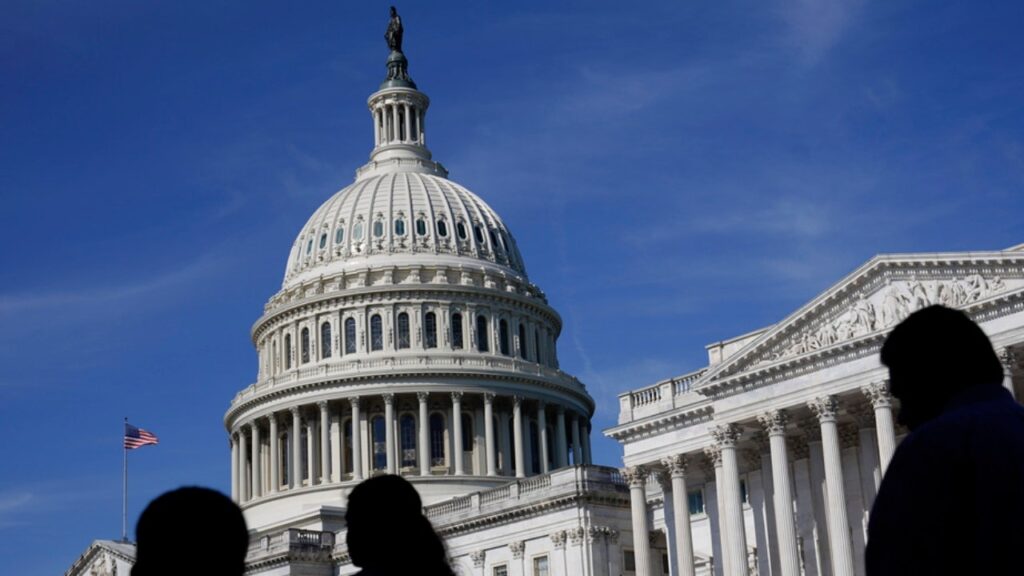For the first time in recorded history, the U.S. national debt has passed the staggering $33 trillion mark. Monday afternoon saw this previously unfathomable limit breached, with the U.S.’s indebtedness to its financiers registering at $33.04 trillion, according to the latest Treasury Department data. A mere four decades prior, the national debt stood at approximately $907 billion, highlighting the exponential growth of our fiscal liabilities.
RECORD 'BROKE'N: The United States just hit a milestone that "no one will be proud of." See where the national debt was just four decades ago. https://t.co/wtdoKt2QBv pic.twitter.com/Ld107sL6fj
— Fox News (@FoxNews) September 19, 2023
This jarring upward trend shows no signs of slowing, with our country’s current level of spending. Maya MacGuineas, the president of the Committee for a Responsible Federal Budget, highlighted this when she said, “The United States has hit a new milestone that no one will be proud of: our gross national debt just surpassed $33 trillion. Debt held by the public, meanwhile, exceeded $26 trillion. We are becoming numb to these huge numbers, but that doesn’t decrease their danger.”
The alarming elevation of the national debt arises as Congress scrambles to elude a government lockdown at September’s conclusion. A plan was proposed late Sunday intending to provisionally fund the government until the end of October, drawing contentious attention to an impassionate face-off on Capitol Hill.
The struggle to curb our national debt has echoed down the halls of Capitol Hill for years. Our lawmakers have tackled one fiscal crisis after another, failing to halt the mounting debt crisis. As Michael Peterson, CEO of the Peter G. Peterson Foundation, grimly pointed out, “After the debt ceiling showdown in June, we crossed the $32 trillion debt milestone. Now, we have raced past $33 trillion.”
Future projections are even grimmer. Findings from the Congressional Budget Office predict the national debt will double over the next 30 years. At the culmination of 2022, the national debt stood at 97% of the gross domestic product. Under current statutes, this proportion is projected to skyrocket to 181% by the end of 2053 — a debt burden that overshadows any previous levels.
The current administration was quick to cast blame for the rising debt on its Republican predecessors, arguing that the jump in debt over the last two decades has been largely fueled by tax cuts for wealthier citizens and large corporations implemented under Republican leadership. These savings for the privileged classes, they argue, has fueled the worrisomely rapid growth of national debt.
The knock-on effect of this pervasive debt becomes even more disconcerting as we factor in rising interest rates, which drive up the expenses associated with servicing this debt, intensifying the strain upon the national budget. As interest rates ascend, the government’s borrowing costs follow suit. Interest on the national debt is predicted to become the fastest-growing component of the federal budget during the next three decades. The result? A devastating tripling in interest payments, from $475 billion in fiscal year 2022 to an astonishing $1.4 trillion in 2032, and by 2053 that figure is projected to rise to $5.4 trillion.
This unsettling trajectory lays bare the stark reality of our current economic situation, a reality that must be decisively addressed. Peterson’s warning encapsulates this truth, “the cost of debt can mount suddenly and rapidly. With more than $10 trillion of interest costs over the next decade, this compounding fiscal cycle will only continue to do damage to our kids and grandkids.”
As the U.S. grapples with this mounting financial crisis, it remains paramount to acknowledge that our current path is unsustainable. It is high time we all acknowledge this reality and engage in a constructive discourse about reforming our fiscal policies. The cost of inaction is becoming increasingly untenable. Our children, and their children, will be burdened with the consequences of our economic recklessness unless tangible and drastic shifts occur in the handling of our nation’s finances. The bell has been rung, and the alarmingly loud toll it tolls must not be ignored. The time to act is now, lest we condemn future generations to a future of fiscal instability and accrued debt. The clock is ticking, and the $33 trillion question is: will we rise to the challenge?



